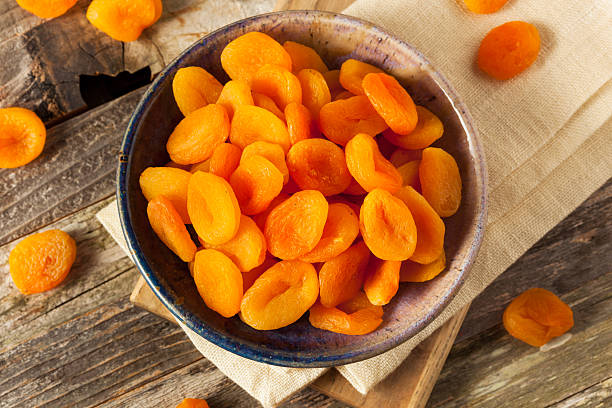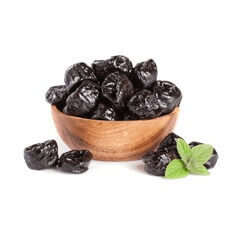Apricots, with their delightful sweet flavour, soft skin, and vibrant colour, have become one of the most beloved fruits in every part of the globe. Despite having a relatively short season of only three months, apricots are cherished for their unique taste and rich nutritional profile, making them a valuable addition to a healthy diet.
Contents
Nutritional and Caloric Values of Apricot
Clarifying the Myth: Sweeter, Dried Apricots?
The Health Benefits of Apricot
Apricots as a Natural Anti-Inflammatory.
Apricot’s Rich Antioxidant Content
The Abundance of Carotenoids in Apricot
Enhancing Carotenoid Absorption.
The Etymology and History of Apricot
Choosing Apricots Responsibly.
Various Culinary Uses of Apricots.
Apricot’s Role in Dressings, Sauces, and Condiments.
Characteristics of Apricot
Apricots boast an impressive array of health benefits due to their rich content of antioxidants, carotenoids, fibre, and essential vitamins like A and C. They are also low in calories, making them an ideal choice for those seeking a healthy and delicious snack option. Additionally, apricots are known to stimulate intestinal transit, aiding in digestive health.
Nutritional and Caloric Values of Apricot
Apricots can be enjoyed in various forms, including fresh, dried, or as juice. In each of these forms, apricots offer a wealth of essential nutrients like fibre, antioxidants, and vitamin A. Dried apricots, in particular, are favoured by athletes for their energy-boosting properties and high iron and copper content.
Clarifying the Myth: Sweeter, Dried Apricots?
Contrary to a common myth, the sugar content in dried apricots remains the same as that in fresh apricots. However, due to the dehydration process, the sugar becomes more concentrated in dried fruits, making them a nutrient-dense food choice. This concentration also affects the levels of other nutrients, including vitamins and minerals, making dried apricots a valuable addition to a balanced diet.
The Micronutrients of Apricot
Apricots are a treasure trove of various essential nutrients. Among these micronutrients are vitamin A, iron, copper, vitamin B3 (niacin), vitamin B5 (pantothenic acid), vitamin C, vitamin K, magnesium, phosphorus, and potassium. These nutrients play critical roles in maintaining overall health and well-being.
The Health Benefits of Apricot
While numerous studies have shown that a diet rich in fruits and vegetables can reduce the risk of cardiovascular diseases, certain cancers, and chronic illnesses, specific studies on the health effects of apricot consumption remain limited. Nevertheless, antioxidants in apricots suggest potential protective effects against various diseases.
An Excellent Source of Fiber
Apricots are particularly rich in fibre, offering several health benefits, including preventing constipation, reducing the risk of colon cancer, and aiding cardiovascular health. A half-cup serving of fresh apricots provides approximately 5-8% of the recommended daily fibre intake for men and women aged 19 to 50. The fibre content is even more concentrated in dried apricots, with a ¼ cup serving offering 8-12% of the daily fibre intake.
Apricots as a Natural Anti-Inflammatory
Some studies suggest that consuming three dried or pickled Japanese apricots daily may decrease the severity of chronic gastritis, an inflammation of the stomach lining caused by the bacterium Helicobacter pylori. This potential anti-inflammatory effect could have implications for reducing the risk of stomach cancer, but further research is needed to confirm these findings.
Apricot’s Rich Antioxidant Content
Apricots are packed with various antioxidants, particularly phenolic compounds from the flavonoid family. These antioxidants neutralize free radicals in the body, potentially preventing cardiovascular diseases, certain cancers, and other chronic illnesses. Dried apricots have a higher antioxidant content compared to fresh apricots, while apricot purees, jams, and juices contain similar compounds but in lower quantities.
The Abundance of Carotenoids in Apricot
Apricots also contain carotenoids, notably beta-carotene, which contributes to their orange colour, and a small amount of lycopene. Beta-carotene can be converted into vitamin A in the body and plays a vital role in overall health. The peel of apricots contains 2-3 times more carotenoids than the flesh, making apricots an excellent source of these beneficial compounds.
Enhancing Carotenoid Absorption
Carotenoids, including beta-carotene, are better absorbed by the body when consumed with a small amount of fat. Therefore, combining dried apricots with nuts or enjoying apricot juice with cheese can maximize the absorption of these valuable nutrients.
Choosing the Perfect Apricot
When selecting apricots, it is essential to look for perfectly ripe ones, characterized by their average weight of 45 grams (including the stone) and characteristic orange colour, often with specks of red. The skin of ripe apricots is fluffy, and the flavour can vary from more acidic to sweeter, depending on the maturity and variety.
The Etymology and History of Apricot
The term “apricot” has an intriguing etymological path, originating from the Latin praecoquum, meaning “early,” as apricot trees bloom very early in the season. Over time, the word passed through various languages like Greek, Arabic, and Spanish before being adopted in French. Interestingly, apricots do not come from Armenia, as the Latin name of the species suggests, but from northeast China, where they were domesticated about 4,000 years ago.
Choosing Apricots Responsibly
In order to enjoy the best flavours, it is recommended to consume apricots grown and harvested locally. Some commercial apricot products, like jam and juice, may contain hidden ingredients like apple or pumpkin puree to reduce production costs. Hence, reading labels carefully is essential to make the best choices.
Storage and Preparation Tips
Apricots have a relatively short shelf life and should be consumed within 2-3 days if kept at room temperature. Refrigeration can extend their freshness for up to a week but may alter their texture and flavour. For longer storage, apricots can be frozen by cutting them in half, removing the core, and freezing the halves on a baking sheet before transferring them to plastic bags.
Various Culinary Uses of Apricots
The versatility of apricots makes them ideal for a wide range of culinary preparations. They can be enjoyed fresh, integrated into desserts, or even used in savoury dishes. From sorbets and ice creams to rice pudding, cakes, and jams, apricots can elevate the flavours of numerous recipes. They also pair excellently with almonds and can be poached in maple syrup or honey and dipped in melted chocolate for a delectable treat.
Apricot’s Role in Dressings, Sauces, and Condiments
Apricots can be used to create delightful dressings, sauces, and condiments. Apricot juice mixed with vegetable oil, cider vinegar, mustard, and a hint of Tabasco sauce makes a flavorful vinaigrette. Combining apricot jam with Dijon mustard creates a delightful mustard condiment that pairs well with meat or salads. For a chutney sauce, mashed apricots can be combined with coriander leaves, ginger root, chopped onions, hot pepper, and lemon juice.
Adnoor is the unrivalled leader in delivering Canada’s highest-quality dried fruits. Our platform is dedicated to offering an exceptional range of premium dried fruits, raisins, nuts, and basmati rice to our valued customers nationwide. With our longstanding expertise as a wholesale supplier of rice and dried fruits in Canada, we take great pride in curating an extensive selection of top-tier products.
CALL US AT +1 (647) 897-8959
REQUEST A QUOTE info@adnoor.ca







